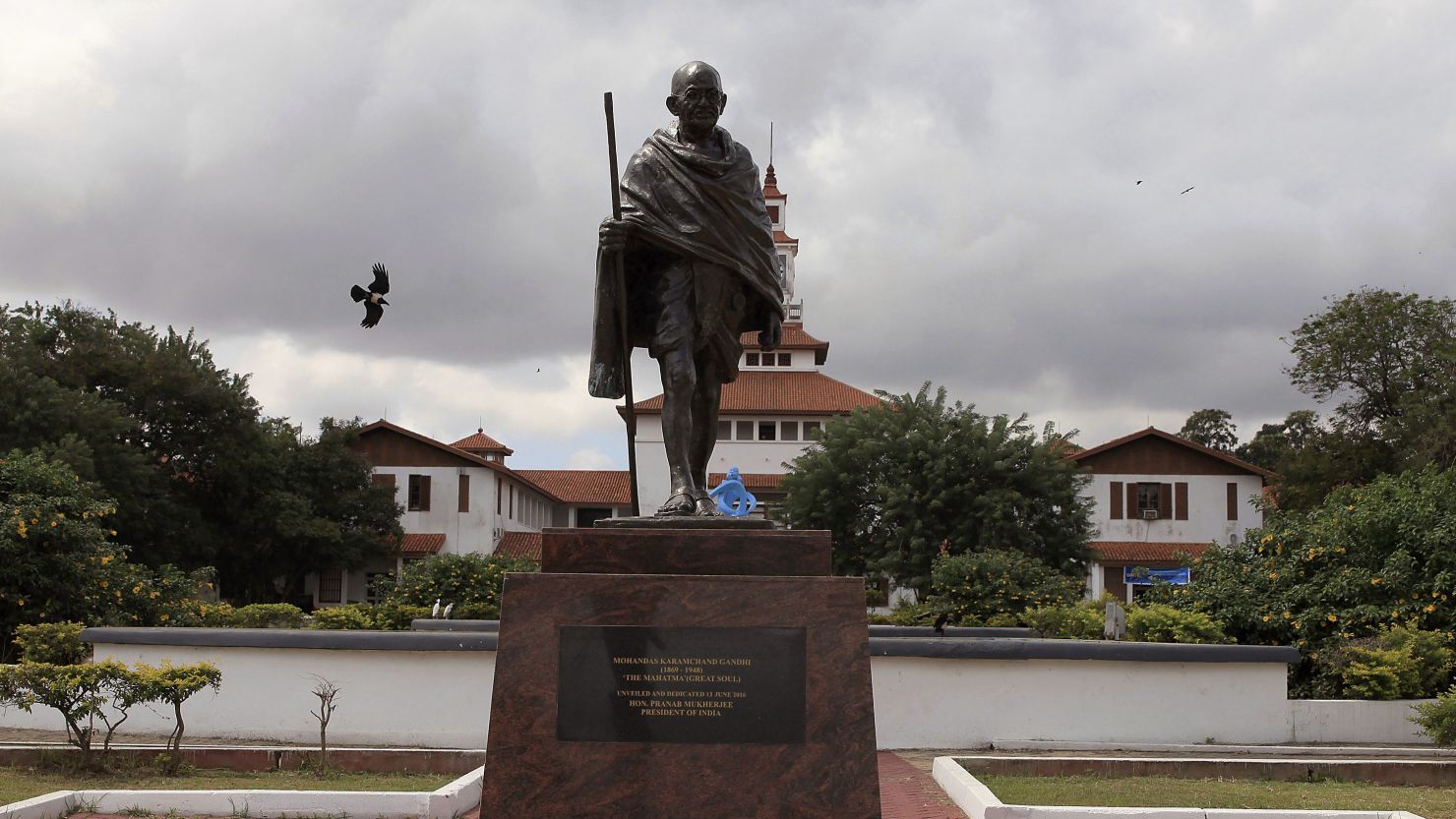
Who was Gandhi? Mohandas Karamchand Gandhi, known as Mahatma Gandhi, was a leader who played a crucial role in India's struggle for independence from British rule. Born on October 2, 1869, in Porbandar, India, Gandhi's philosophy of nonviolent resistance inspired movements for civil rights and freedom across the world. He believed in simple living, self-reliance, and the power of truth. Gandhi's life was marked by his commitment to social justice, equality, and peace. His legacy continues to influence global leaders and activists. Ready to learn more? Here are 26 amazing interesting facts about Gandhi that will give you a deeper insight into his extraordinary life.
Early Life and Education
Mahatma Gandhi, a pivotal figure in India's struggle for independence, led a life filled with remarkable events and achievements. Let's explore some fascinating facts about his early years.
- Born on October 2, 1869, in Porbandar, India, Gandhi's full name was Mohandas Karamchand Gandhi.
- His father, Karamchand Gandhi, served as the chief minister of Porbandar, a small princely state in western India.
- Gandhi's mother, Putlibai, was deeply religious and influenced his spiritual development.
- At the age of 13, Gandhi married Kasturba Makhanji in an arranged marriage, a common practice in India at that time.
- He studied law in London, attending University College London and the Inner Temple, one of the four Inns of Court.
Journey to South Africa
Gandhi's time in South Africa was transformative, shaping his philosophy and approach to activism.
- In 1893, Gandhi traveled to South Africa to work as a legal representative for an Indian firm.
- He faced racial discrimination firsthand when he was thrown off a train for refusing to move from the first-class compartment.
- This incident sparked his commitment to fight against racial injustice and discrimination.
- Gandhi founded the Natal Indian Congress in 1894 to fight for the rights of the Indian community in South Africa.
- He developed his concept of "Satyagraha," or nonviolent resistance, during his 21 years in South Africa.
Return to India and Leadership
Upon returning to India, Gandhi became a central figure in the independence movement, employing nonviolent methods to challenge British rule.
- Gandhi returned to India in 1915 and joined the Indian National Congress.
- He led the Champaran and Kheda agitations, which were successful nonviolent protests against oppressive policies.
- In 1920, he launched the Non-Cooperation Movement, urging Indians to boycott British goods and institutions.
- Gandhi's Salt March in 1930 was a pivotal act of civil disobedience against the British salt tax.
- He was imprisoned multiple times for his activism, spending a total of over six years in jail.
Personal Beliefs and Practices
Gandhi's personal beliefs and practices were as influential as his political actions, inspiring millions around the world.
- He practiced vegetarianism, influenced by his mother and the Jain community in Gujarat.
- Gandhi believed in "Ahimsa," or nonviolence, which became a cornerstone of his philosophy.
- He promoted simple living, often spinning his own cloth and encouraging others to do the same.
- Gandhi was a strong advocate for women's rights, believing in their equal role in society.
- He practiced fasting as a form of protest and self-purification, undertaking 17 fasts during his lifetime.
Legacy and Influence
Gandhi's legacy extends far beyond India's borders, influencing global movements for civil rights and freedom.
- His philosophy of nonviolence inspired leaders like Martin Luther King Jr. and Nelson Mandela.
- The United Nations celebrates October 2 as the International Day of Non-Violence in honor of Gandhi's birthday.
- Gandhi's autobiography, "The Story of My Experiments with Truth," offers deep insights into his life and philosophy.
- He was nominated for the Nobel Peace Prize five times but never won.
- Gandhi's image appears on all Indian currency notes as a symbol of his enduring legacy.
- His life and teachings continue to inspire movements for social justice and peace worldwide.
Gandhi's Legacy Lives On
Gandhi's life was full of remarkable achievements and inspiring moments. His dedication to non-violence and civil rights changed the world forever. From leading the Salt March to advocating for the untouchables, Gandhi's actions spoke louder than words. His influence reached far beyond India, inspiring leaders like Martin Luther King Jr. and Nelson Mandela. Even today, his teachings continue to guide movements for social justice and equality. Gandhi showed us that one person can indeed make a difference. His legacy reminds us to stand up for what's right, even when it's hard. So next time you face a challenge, think of Gandhi's courage and determination. His life is a testament to the power of peaceful resistance and the enduring impact of moral leadership. Let's carry forward his vision of a just and compassionate world.
Was this page helpful?
Our commitment to delivering trustworthy and engaging content is at the heart of what we do. Each fact on our site is contributed by real users like you, bringing a wealth of diverse insights and information. To ensure the highest standards of accuracy and reliability, our dedicated editors meticulously review each submission. This process guarantees that the facts we share are not only fascinating but also credible. Trust in our commitment to quality and authenticity as you explore and learn with us.


